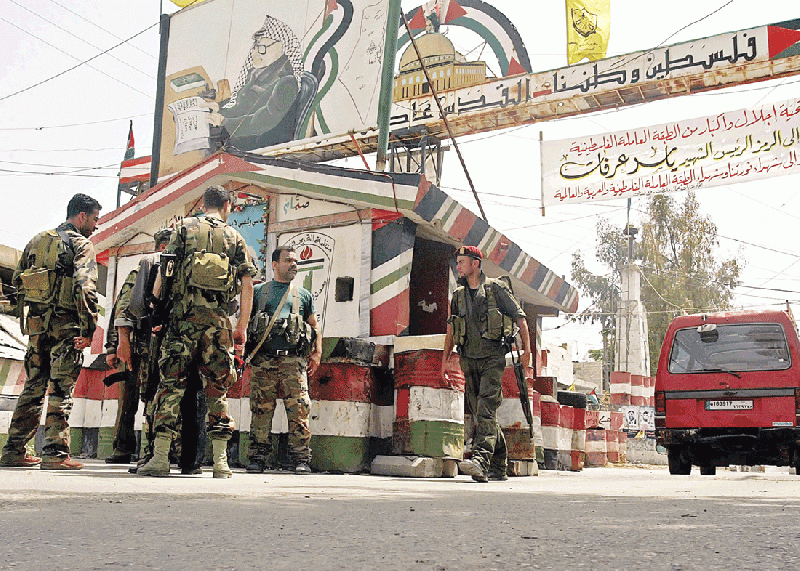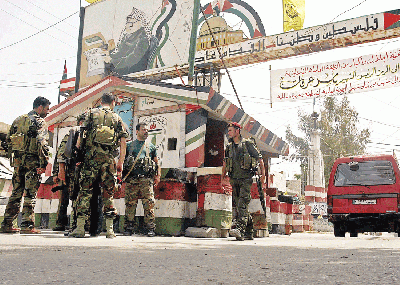The security situation inside Ain al-Hilweh camp does not bode well, as the repercussions of the killing of Fatah member Mahmoud Zbeidat a week ago continue to unfold, coinciding with the failure to hand over his killer, Khaled Jamal Alaaedin, known as Al-Khomeini, who is affiliated with "An-Nasr Brigade." On the ground, all indicators suggest the possibility of renewed clashes at any moment, particularly along the main street at the upper street, where barricades and tents have been set up, especially before and after Al-Safsaf Mosque and towards Al-Tayri neighborhood. Since the recent clashes, which led to Zbeidat's death and over ten injuries, the camp remains paralyzed, with UNRWA institutions and schools still closed in anticipation of further violence.
The Palestinian Joint Action Authority, representing all Palestinian national and Islamic forces, has kept its meetings open over the past few days. An assembly was held at the Muhammad Zghayb military barracks, in coordination with army intelligence, where they unanimously agreed to hand over the killer to the joint Palestinian forces, which would in turn transfer him to the Lebanese authorities. However, after the meeting, it became clear that there was no intention to surrender Al-Khomeini, as the leadership of "An-Nasr Brigade" stated he is under the protection of his family, who also refuse to hand him over, thereby returning the situation to square one with fears of renewed clashes. This is especially so as Zbeidat's family, supported by the leadership of Fatah movement, insists on the delivery and accountability of the killer.
For his part, the leader of the Palestinian joint security force in Ain al-Hilweh camp, Colonel Abd al-Hadi Al-Asadi, described the situation inside the camp as "bleak and not promising." He pointed out that there was "a unified Palestinian consensus to hand over the killer, but we were surprised by the hesitation of some and their evasion of responsibilities." He emphasized that "everyone is required to assume responsibility towards our people in the camp, return to their senses, and prioritize wisdom to prevent the camp from regressing to a time of security quadrants and assassinations, thus leading to its destruction." Al-Asadi noted that as Palestinian forces, they have shown readiness "to assume responsibility and unanimously decide to hand over the killer to preserve the camp."
In response to a question, he confirmed that "the situation on the ground inside the camp is tense, with barricades and tents," stressing the "necessity of handing over the killer in adherence to the decision of the Palestinian Joint Action Authority and to spare the camp from any security disturbances."
For his part, Fouad Osman, a member of the Palestinian Joint Action Authority and responsible for the "Democratic Front for the Liberation of Palestine" in Ain al-Hilweh, described the situation inside the camp as "critical and sensitive," requiring careful and responsible management to safeguard the camp, our people, and the relationship with the neighboring communities. He stated, "While our people in the occupied territories and the West Bank are leading an honorable confrontation with the Zionist occupation, any fighting in the camp undermines our cause. Thus, it is essential to work towards a solution by handing over the killer and adhering to the decision of the Joint Palestinian Action Authority, which includes all national and Islamic forces, to thwart any attempts to tamper with the security and stability of this camp."




